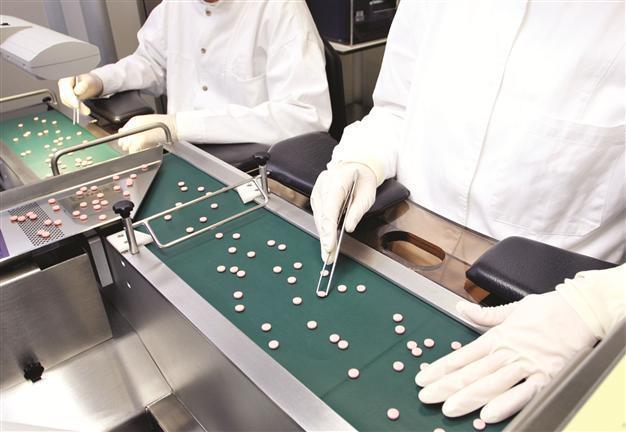Turkey’s pharma sector doubles in one decade
ISTANBUL

There are about 300 pharma firms active in Turkey, but the domestic market is dominated by large-scale firms. The largest 20 pharma firms have the 65 percent of the domestic market. The sector is not confident with the future despite successful exports. Hürriyet photo
The Turkish pharmaceutical industry nearly doubled in size in the last 10 years, reaching a total market volume of 15 billion Turkish Liras, according to an industry report.The industry has weighed upon exports as drug prices declined and costs increased, narrowing the domestic market down. Pharmaceutical exports shot up 58.6 percent in the last five years, a written statement by the Chemical Materials and Products Exporters’ Association of Istanbul (İKMİB) said.
Germany, Iraq and Switzerland were the top exports markets last year, according to sector data. Britain, the Turkish Cyprus, Slovenia, Belgium, Azerbaijan-Nakhchivan, the United States and Algeria are also among the top 10 exports market.
The amount of exports in the Turkish pharmaceutical industry increased 58.6 percent to hit $512.1 million in 2011 from nearly $322.8 million in 2007. The figure hit $316.1 million in the first seven months of the current year.
There are nearly 300 firms active in the local pharmaceutical industry, which is dominated by large scale companies. In terms of turnover, the largest 20 firms in the industry have 65 percent of the domestic market. The combined market share of the largest 50 pharmaceutical firms tops at 85 percent.
‘Ambiguous future’
Domestic production provides 80 percent of 1.6 billion boxes of drugs consumed in a year, but imported drugs make up half of the domestic market in terms of value.
“The increase in exports of one of the important sub sectors pharmaceutical industry in recent years is remarkable,” said İKMİB Chairman Murat Akyüz. The exports may increase further with more value added products given the high potential of Turkey in the sector, he said.
The pharmaceutical producers face an ambiguous future despite favorable developments in the last 10 years, he said. “Developments in public health services have contributed to the sector a great deal. The quality of service has improved. But despite all, low drug prices while costs increase, delays in licensing and paybacks and difficulties in [protecting] intellectual property rights effect the sector negatively. Taking steps to tackle these problems and promoting domestic production will accelerate exports while growing the Turkish pharmaceutical industry,” he said.
















